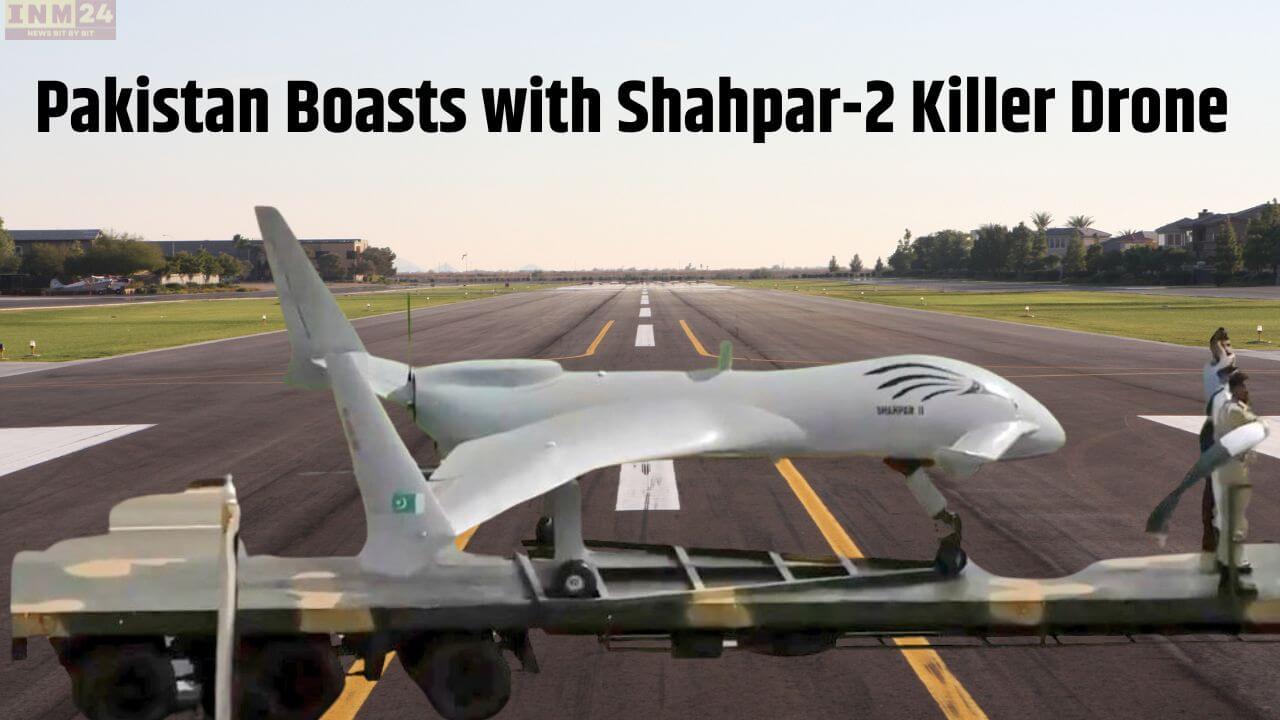Pakistan, relying on its self-proclaimed prowess in drone technology, has initiated a trend of provoking its own allies, China and Turkey. Pakistan has developed a drone named Shahpar-2 capable of firing missiles, claiming it to be superior to drones from China and Turkey.
Shahpar-2 Drone Challenges Chinese and Turkish Weapons
Pakistan, after procuring drones from China and Turkey, has now claimed to develop a lethal indigenous drone called Shahpar-2. This drone is said to outperform China’s CH-4 and Turkey’s Bayraktar TB2 drones in terms of capabilities.
The Shahpar-2 drone, designed by a Pakistani government-owned company, GIDS, recently underwent a successful test flight. During the demonstration, the Pakistani drone showcased live firing capabilities in front of military officials from eleven countries worldwide.
Why is Pakistan Praising its Drones?
Pakistani authorities have highlighted the development of the Shahpar-2 drone as a testament to the country’s commitment to strengthening its defense capabilities. The drone’s capabilities are being enhanced to include the integration of Bark-2 missiles and laser-guided bombs for precise targeting.
During its test flight in Bahawalpur city, Pakistan, the Shahpar-2 drone demonstrated its ability to engage ground targets from an altitude of 14,000 feet using Bark missiles. Pakistani officials claim that the drone accurately hit designated ground targets, showcasing its effectiveness.
Pakistan’s Diplomatic Maneuver
Pakistan’s display of the Shahpar-2 drone to military officials from various countries, including Saudi Arabia, Azerbaijan, Kenya, Nigeria, and others, is seen as an attempt to market the drone internationally. It is believed that Pakistan is striving to sell its drones to these countries to alleviate its financial woes.Before this development, Azerbaijan had announced its intention to purchase JF-17 fighter jets from Pakistan.
This collaboration between Pakistan and Azerbaijan, along with Pakistan’s unveiling of the Shahpar-2 drone, seems to indicate a shift in alliances in the region. Pakistan’s willingness to challenge its allies’ military capabilities reflects a strategic maneuver to assert its own position in the global defense market.
The Shahpar-2 drone, with its ability to fly long distances at medium altitudes, has been hailed as a significant achievement for Pakistan’s defense industry. Equipped with laser targeting systems, it has the potential to conduct precise strikes on ground targets, making it a formidable asset for Pakistan’s military arsenal.
However, Pakistan’s boastful display of its drone capabilities has raised eyebrows among its allies, particularly China and Turkey. The challenge posed by the Shahpar-2 drone to Chinese and Turkish drones could strain diplomatic relations and trigger competition in the defense technology sector.
As Pakistan seeks to establish itself as a key player in the global defense market, the success of the Shahpar-2 drone could pave the way for further advancements in its indigenous defense industry. Nevertheless, the implications of Pakistan’s actions on its diplomatic ties and regional stability remain to be seen.
